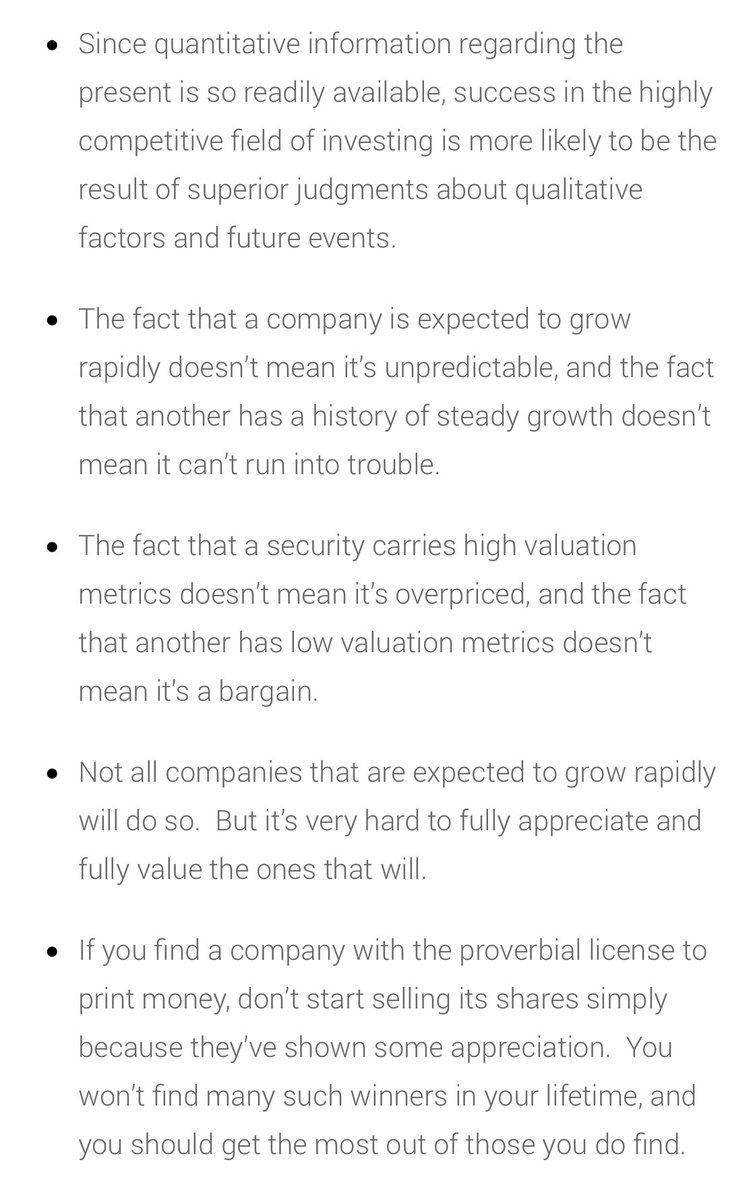
1/ This from today reminds me of conversations I had with Bill Gurley and Benchmark partners in 1999 when I was spending a lot of time in their office. We talked about "software in a box."
"Electric vehicles are more about software than hardware." wsj.com/articles/how-v…
"Electric vehicles are more about software than hardware." wsj.com/articles/how-v…
2/ I wrote about the "software in a box" business model in this post: 25iq.com/2018/03/10/pel… I wrote in that post:
'Some people like to say 'every business is now a technology business.' The more precisely accurate statement is “every business is a software/SaaS business.”
'Some people like to say 'every business is now a technology business.' The more precisely accurate statement is “every business is a software/SaaS business.”
3/ We are still in the first inning when it comes to how software will impact value chains in business.
Charlie Munger says look for a tailwind in you career. Software is that tailwind.
Steve Jobs in 2004:
“More and more [devices] look like software in a box."
Charlie Munger says look for a tailwind in you career. Software is that tailwind.
Steve Jobs in 2004:
“More and more [devices] look like software in a box."
4/ Mr. McGuire: "I want to say one word to you. Just one word. Are you listening?"
Benjamin: "Yes."
McGuire: "Software.
The probability of career success is far higher if you are in business that is growing because it is becoming more valuable. Tailwinds make life better."
Benjamin: "Yes."
McGuire: "Software.
The probability of career success is far higher if you are in business that is growing because it is becoming more valuable. Tailwinds make life better."
5/ Benjamin: "That's more than one word."
McGuire: "In an industry that's growing like software there's more opportunity since the economic pie is expanding. Things like battlefield promotions are more likely. There's less politics if there's growing opportunity for everyone."
McGuire: "In an industry that's growing like software there's more opportunity since the economic pie is expanding. Things like battlefield promotions are more likely. There's less politics if there's growing opportunity for everyone."
6/ If you don't see that the parts of every value chain which create and use better software aren't capturing more and more of the profit pool, you aren't paying attention.
Businesspeople like Chance know this.
"‘Chano you ain’t playin’ fair!’” Yep.
25iq.com/2018/09/01/les…
Businesspeople like Chance know this.
"‘Chano you ain’t playin’ fair!’” Yep.
25iq.com/2018/09/01/les…
• • •
Missing some Tweet in this thread? You can try to
force a refresh








